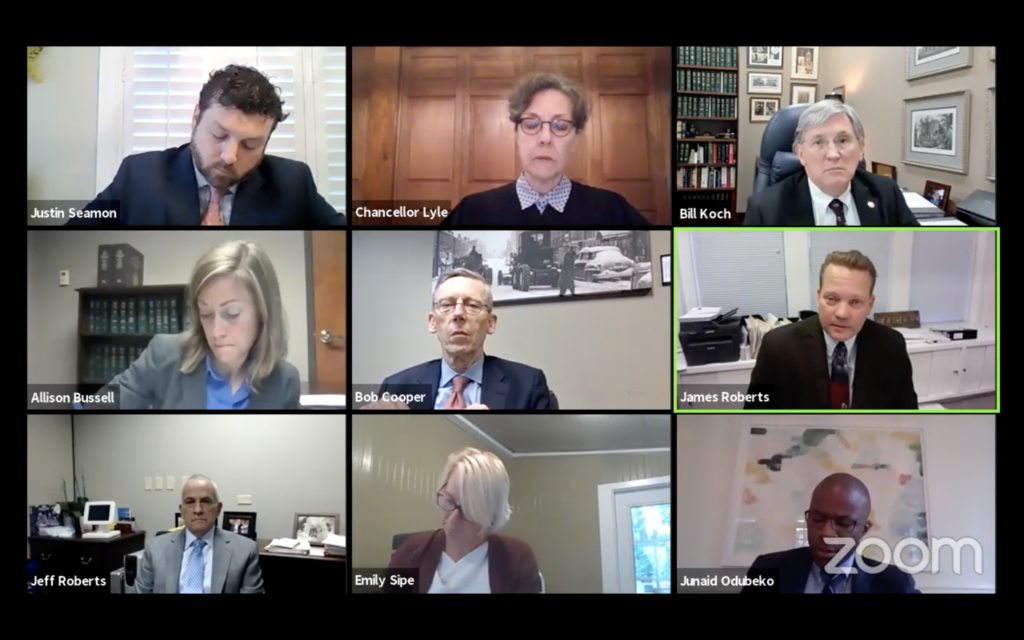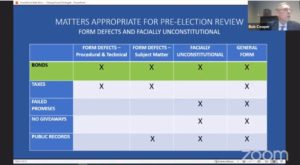
A judge says Nashville voters won’t get a chance to weigh in on an anti-tax referendum in December.
The Nashville Taxpayer Protection Act was a proposal to cancel the recent 34% property tax increase, restrict future increases and limit other city council powers.
Davidson County Chancellor Ellen Hobbs Lyle issued her verdict late Tuesday afternoon.
She says the proposal violates Tennessee law in several ways. A few of those reasons include changing the tax rate in the middle of the fiscal year, adding new conditions to ongoing leases with sports teams and adding provisions the Metro Charter using “marketing” words without informing voters of the potential consequences.
“Unbeknownst to the signers who were presented with the referendum Petition,” Lyle writes in her order. “It contains a Proposed Act that is defective in form, facially unconstitutional and under no set of circumstances could be valid.
The group 4Good Government backed the petition. Nashville lawyer Jim Roberts wrote its five prongs and conservative advocacy group Americans For Prosperity worked to get over 20,000 signatures.
In late September, the Davidson County Election Commission asked the court for guidance about whether the petition can become a ballot measure.
The commission knew parts of the petition were illegal. Some commissioners were concerned that having an election despite knowing that some of its provisions would be unenforceable would waste over $800,000 in city funds, and that going through a sequence in which a court strikes down the public’s vote would damage trust in the process of holding a referendum.
Lyle agreed, writing that the proposal is impermissible under Tennessee law.
“Circulating Petitions with clearly invalid content raises the expectations of the signers and then frustrates them, and that is what has occurred in this case,” she wrote.
Roberts and Metro attorneys made arguments for and against the petition becoming a ballot measure.

Metro Law Director Bob Cooper shares an image that breaks down why the “Nashville Taxpayer Protection Act” is illegal.
Metro’s lawyers argued each of the five prongs of the referendum is illegal, either because of its content, how the petition attempts to make its change, or because the proposed rule doesn’t comply with existing Tennessee law.
“These are business operations that in most instances are not pulled out of thin air. Instead, we do business this way because it’s required by law,” Metro attorney Allison Bussell said during opening arguments. “4Good Government wants us to ignore the guardrails that dictate what referendum is available for and how it should be done.”
The lawyer in support of the petition says it should go before voters and that debates about what’s lawful should follow later.
“We are fighting over whether the people will be denied the right to vote on this petition,” Roberts explained to Chancellor Lyle during closing arguments. “We already understand they have a right to vote on it. They followed the requirements.”
At different points of the trial, the chancellor challenged Metro over how much material its attorneys had to wade through to make their case.
Lyle also challenged Roberts to explain contradictory statements he made. He initially said it would violate the petition signers’ intentions to keep any portion of the petition off of the ballot — but later suggested courts do have that authority.
Roberts says he isn’t sure if the group will appeal the judge’s decision or redo the ballot initiative, which would require getting even more petition signatures.
“I expect Metro’s actions and unfortunately the court’s ruling is going to be a catalyst. To cause a lot of anger among the voters,” he tells WPLN News. “And I think it’ll be even easier to gather signatures.”

